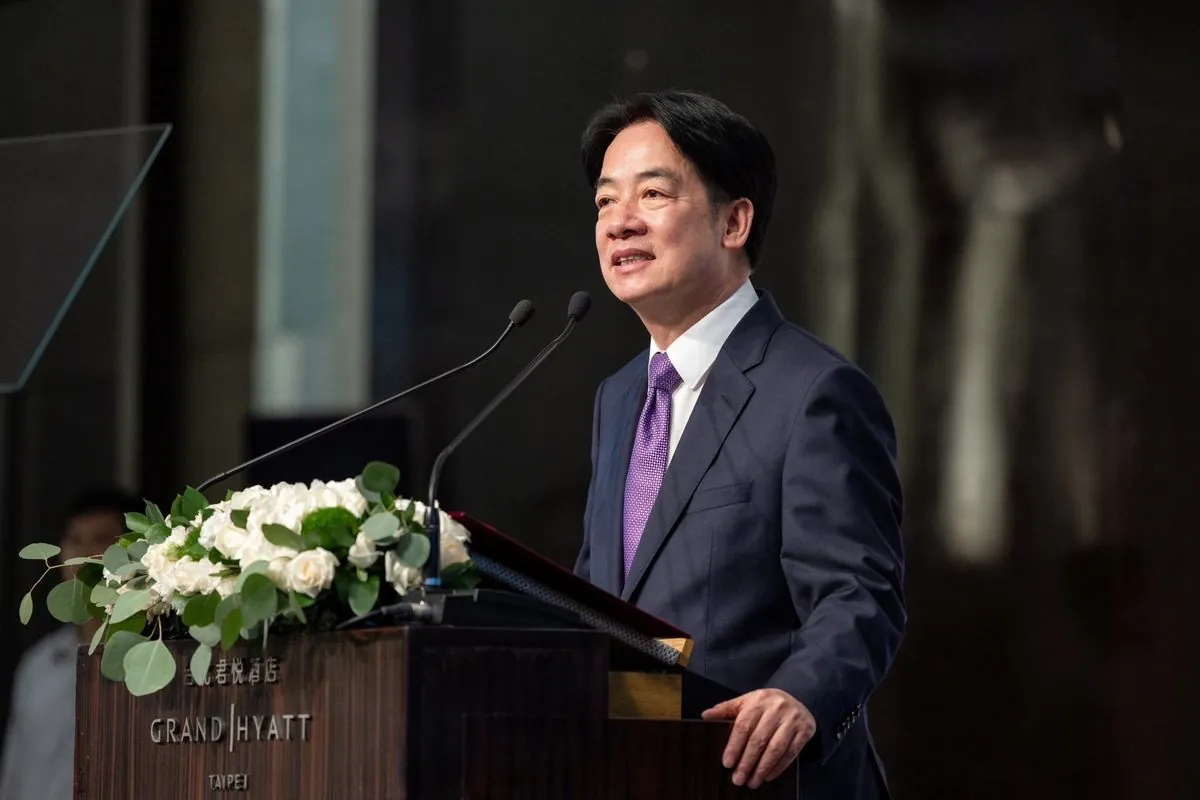In a recent interview with Taiwanese media, Lai Ching-te, the President of Taiwan, challenged China's claims over the island by referencing a historical land cession to Russia. The discussion, which took place on September 2, 2024, brought attention to the complex geopolitical situation in East Asia.
Lai Ching-te pointed to the Treaty of Aigun, signed in 1858 between the Russian Empire and China's Qing dynasty. This agreement resulted in China ceding over 600,000 square kilometers of territory to Russia, forming much of the present-day border along the Amur River. The treaty was later reaffirmed by the Convention of Peking in 1860.
"If it is for the sake of territorial integrity, why doesn't it take back the lands occupied by Russia that were signed over in the Treaty of Aigun? Russia is now at its weakest right?"
Lai argued that if China's claims on Taiwan were truly about territorial integrity, it should also seek to reclaim the land transferred to Russia during the Qing dynasty's decline. He suggested that China's reluctance to do so, especially given Russia's current geopolitical challenges, indicates that territorial integrity is not the primary motivation for its stance on Taiwan.
The Taiwanese leader's comments highlight the complex historical context of the region. In 1895, the Qing dynasty ceded Taiwan to Japan through the Treaty of Shimonoseki, another of the "unequal treaties" China refers to from the 19th century. Following World War II in 1945, Taiwan was handed over to the Republic of China government, which later retreated to the island in 1949 after losing the Chinese Civil War.
Lai Ching-te asserted that China's true aim is not territorial integrity but rather to change the rules-based international order and achieve hegemony in the Western Pacific. This perspective adds a new dimension to the ongoing debate over Taiwan's status and China's intentions in the region.
It's worth noting that Taiwan, with a population of approximately 23.5 million people, has been self-governed since 1949. The island, formerly known as Formosa, has developed a strong economy focused on technology and electronics manufacturing. Its strategic location in the Taiwan Strait, between the East China Sea and the South China Sea, contributes to its geopolitical significance.
As tensions continue to simmer in the region, Lai's comments serve as a reminder of the complex historical and political factors at play in the Taiwan-China relationship. The ongoing debate over Taiwan's status remains a critical issue in international diplomacy and regional stability.
